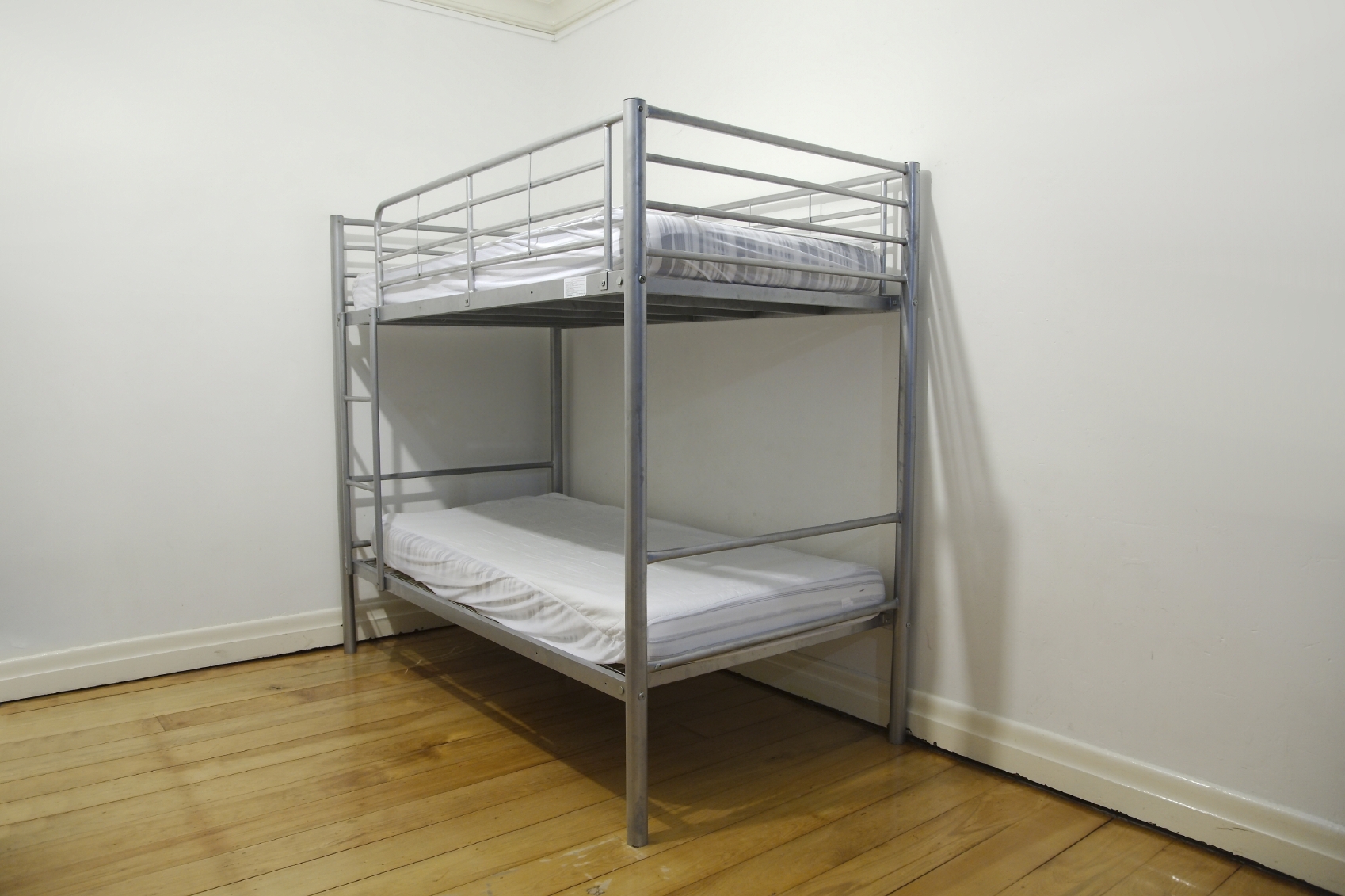Venture capitalists think millennials will pay $1,800 a month to live in adult dorm rooms


Go to any social gathering in Brooklyn, the San Francisco area, Seattle, Washington, D.C., Austin, or any number of other cities favored by young professionals, and the topic invariably turns to the skyrocketing cost of housing. Typically, you are supposed to spend about 30 percent of your income on housing, financial experts say, but the typical solo renter between 22 and 34, paying the median U.S. apartment rent, spends 53 percent of income — and in San Francisco, where the median rent is about $4,500 a month, that slice of income jumps to 78 percent, according to Zillow. Venture capitalists have one solution, The Wall Street Journal reports: "adult dorms."
The idea is that young people moving to new cities will want a community they can simply move into, rather than scouring Craigslist for an apartment and/or roommate, and they will be willing to pay for a tiny room with shared kitchen and living spaces. That idea has attracted some pretty big money — WeWork Cos., which offers shared office space, recently secured more than $1.4 billion to kick off WeLive co-housing projects in lower Manhattan and suburban D.C. There is "insanely high consumer demand for reimagining how millennials live in urban environments," says Jason Stoffer, a partner at a firm, Maven, backing co-living startup Common.
"The risk," say Eliot Brown and Laura Kusisto at The Journal, "is that young workers will balk at paying the high prices the startups are counting on — upward of $1,800 a bed a month in some cases — to live in what is essentially an upscale college dorm or a retirement home for the young." Still, price aside, it isn't exactly a new idea. A century ago, new residents of big cities lived in boardinghouses or residential hotels. "Widening income gaps and the resurgence of the city create the market conditions for the rebirth of rooming houses," says Alan Durning at nonprofit think tank the Sightline Institute. "The way people have afforded to live in central cities is to have less space." Read more at The Wall Street Journal.
The Week
Escape your echo chamber. Get the facts behind the news, plus analysis from multiple perspectives.

Sign up for The Week's Free Newsletters
From our morning news briefing to a weekly Good News Newsletter, get the best of The Week delivered directly to your inbox.
From our morning news briefing to a weekly Good News Newsletter, get the best of The Week delivered directly to your inbox.
A free daily email with the biggest news stories of the day – and the best features from TheWeek.com
Peter has worked as a news and culture writer and editor at The Week since the site's launch in 2008. He covers politics, world affairs, religion and cultural currents. His journalism career began as a copy editor at a financial newswire and has included editorial positions at The New York Times Magazine, Facts on File, and Oregon State University.
-
 High Court action over Cape Verde tourist deaths
High Court action over Cape Verde tourist deathsThe Explainer Holidaymakers sue TUI after gastric illness outbreaks linked to six British deaths
-
 The battle over the Irish language in Northern Ireland
The battle over the Irish language in Northern IrelandUnder the Radar Popularity is soaring across Northern Ireland, but dual-language sign policies agitate division as unionists accuse nationalists of cultural erosion
-
 Villa Treville Positano: a glamorous sanctuary on the Amalfi Coast
Villa Treville Positano: a glamorous sanctuary on the Amalfi CoastThe Week Recommends Franco Zeffirelli’s former private estate is now one of Italy’s most exclusive hotels
-
 TikTok secures deal to remain in US
TikTok secures deal to remain in USSpeed Read ByteDance will form a US version of the popular video-sharing platform
-
 Unemployment rate ticks up amid fall job losses
Unemployment rate ticks up amid fall job lossesSpeed Read Data released by the Commerce Department indicates ‘one of the weakest American labor markets in years’
-
 US mints final penny after 232-year run
US mints final penny after 232-year runSpeed Read Production of the one-cent coin has ended
-
 Warner Bros. explores sale amid Paramount bids
Warner Bros. explores sale amid Paramount bidsSpeed Read The media giant, home to HBO and DC Studios, has received interest from multiple buying parties
-
 Gold tops $4K per ounce, signaling financial unease
Gold tops $4K per ounce, signaling financial uneaseSpeed Read Investors are worried about President Donald Trump’s trade war
-
 Electronic Arts to go private in record $55B deal
Electronic Arts to go private in record $55B dealspeed read The video game giant is behind ‘The Sims’ and ‘Madden NFL’
-
 New York court tosses Trump's $500M fraud fine
New York court tosses Trump's $500M fraud fineSpeed Read A divided appeals court threw out a hefty penalty against President Trump for fraudulently inflating his wealth
-
 Trump said to seek government stake in Intel
Trump said to seek government stake in IntelSpeed Read The president and Intel CEO Lip-Bu Tan reportedly discussed the proposal at a recent meeting
